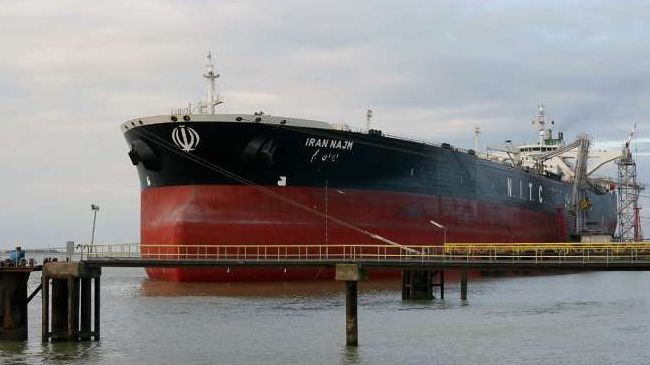By Staff Reporter
ISLAMABAD: The government, seeking to ease concerns over oil supplies, has assured the public that the country holds sufficient petroleum stocks to handle disruptions from the intensifying US-Iran conflict in the Middle East following US military strikes on Iran’s nuclear facilities.
The Oil and Gas Regulatory Authority (OGRA) has directed oil marketing companies to maintain their mandatory 20-day stock levels, and officials are closely tracking the fallout from the Iran-Israel conflict, which threatens global oil supply.
State Minister of Finance Bilal Azhar Kayani told the National Assembly Standing Committee on Finance on Sunday that Pakistan has “enough stocks of petroleum products” to weather the current crisis. “We have enough stocks of the POL products with uninterrupted supply,” Kayani said, emphasising that the Prime Minister House, Ministry of Petroleum, and Ministry of Finance are monitoring the situation daily.
The remarks came hours after the U.S. struck three sites in Iran, intensifying a conflict that has already rattled oil markets. The escalation began early Sunday, with the U.S. inserting itself into Israel’s campaign to dismantle Iran’s nuclear program, a move that risks sparking a broader regional war. The Israel-Iran conflict, which erupted on June 13 when Israel launched widespread attacks on Iranian nuclear, military, and residential targets, has killed over 400 people in Iran, mostly civilians, and left 24 civilians dead and more than 1,200 injured in Israel from Tehran’s retaliatory strikes.
Oil Markets Jittery as Strait of Hormuz Looms Large
Oil futures surged more than 2% in the first trading session after the US attacks. US crude climbed $1.76, or 2.38%, to $75.60 per barrel, while Brent crude rose $1.80, or 2.34%, to $78.81 per barrel. Brent briefly spiked 5.7% to top $81 before settling back.
Investors are bracing for Iran’s response, with the country’s foreign minister declaring on Sunday that the Islamic Republic reserves “all options” to defend itself.
The biggest fear for oil markets is a potential closure of the Strait of Hormuz, a narrow waterway carrying about 20 million barrels per day of crude, roughly one-fifth of global consumption, in 2024. Iran, which produced 3.3 million barrels per day in May according to OPEC’s June report and exported 1.84 million barrels daily, mostly to China, has threatened action. Iranian state media reported that parliament supports shutting the strait, though the decision rests with the national security council.
Any disruption in the Strait of Hormuz would be catastrophic for the global oil supply. Countries’ reliance on imported oil, including Pakistan, makes them particularly vulnerable.
Pakistan’s Precarious Position
Pakistan, heavily dependent on imported oil, faces steep risks if prices remain elevated. A sustained spike could widen its current account deficit, fuel inflation, and strain an economy already grappling with low foreign reserves and sluggish growth. Local media reported this week that authorities have ramped up oil imports to bolster reserves as the conflict deepens.
OGRA confirmed Sunday that it has instructed oil marketing companies to maintain their mandatory 20-day stockpiles. “The country currently holds sufficient stocks of petroleum products to meet existing demand,” the regulator said in a statement, echoing Kayani’s assurances.
Despite the turmoil, Middle Eastern oil exports have held steady. S&P Global Commodities at Sea data show average outbound crude volumes through the Strait of Hormuz at 14.58 million barrels per day as of June 18, just shy of May’s 14.64 million.
Maritime Risks Drive Up Costs
The conflict has sent marine insurance costs soaring. War risk premiums for cargo ships calling at Israeli ports have jumped to 0.7% of hull and machinery value, up from 0.2% before the June escalation, according to Marcus Baker, global head of marine and cargo at Marsh McLennan. Premiums for vessels transiting the Red Sea and Persian Gulf have also climbed, hitting 0.25%-0.30% and 0.2%, respectively.
“Given that the situation is currently contained within the region, risks are still being placed to enable cargo to flow through these areas,” Baker told S&P Global Commodity Insights on June 19. Still, underwriters are tightening terms, with quotes now valid for just 24 hours and 96-hour cancellation clauses becoming standard.
Iran has hinted at targeting ships linked to Israel and its allies near the Strait of Hormuz, where electronic interference has already disrupted navigation. On June 17, a collision between the Frontline-owned VLCC Front Eagle and the Suezmax Adalynn underscored the rising hazards, though Frontline said the incident was unrelated to the conflict.
Regional Tensions Simmer
Neighboring Iraq, OPEC’s second-largest producer, is also on edge. Pro-Tehran militias have warned of reprisals against U.S. interests if Iran’s leadership is targeted. Iran’s Revolutionary Guard said Sunday that “U.S. bases in the region are not their strength but rather their greatest vulnerability,” according to the Fars news agency.
For now, Pakistan’s government is projecting calm. Kayani reiterated that there’s “no need to worry about” supply disruptions.
Copyright © 2021 Independent Pakistan | All rights reserved




